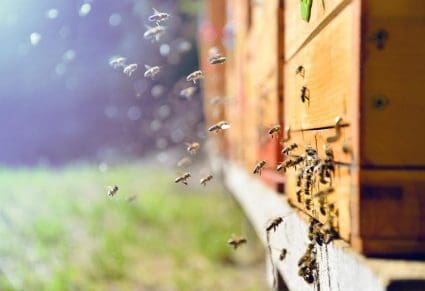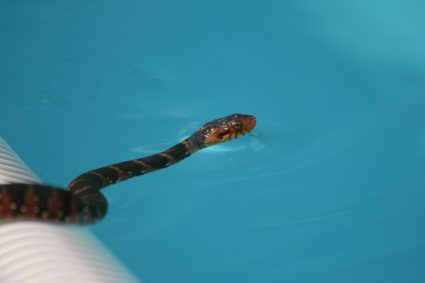
Squirrels, while cute and often entertaining, can become a nuisance for homeowners when they invade gardens, bird feeders, or even homes. They can cause damage by gnawing on wood, electrical wires, and plants. One effective way to deter these agile creatures is using smells they find unpleasant. This article will delve into what smells deter squirrels and how to use these smells effectively to keep these critters at bay.
Squirrels are deterred by strong, unpleasant smells such as peppermint oil, cayenne pepper, vinegar, citrus scents, coffee grounds, and the smells of garlic and onions. These can be applied around areas you want to keep squirrel-free. Commercially available squirrel deterrents also use these scents. Remember to reapply these regularly and consider combining with other pest control methods for maximum effectiveness.
Understanding Squirrels and Their Sense of Smell
Squirrels have a highly developed sense of smell, which they use for finding food, communicating with other squirrels, and marking their territories. They can even detect buried nuts under a foot of snow. This keen sense of smell also means they are sensitive to certain scents, which can be used to discourage them from visiting certain areas.
Natural Scents That Deter Squirrels
There are numerous natural smells that squirrels find unappealing. Here are some of the most effective ones:
- Peppermint oil: This strong scent is not favored by squirrels and can be used to deter them. Soak cotton balls in peppermint oil and place them in areas where squirrels frequent.
- Cayenne pepper: Squirrels dislike the smell of spicy foods. Sprinkle cayenne pepper around your garden or mix it with birdseed. The birds won’t mind, but the squirrels will stay away.
- Vinegar: The strong, sour smell of vinegar can be off-putting to squirrels. Spray vinegar around your garden or on items you don’t want squirrels to chew on.
- Citrus scents: Squirrels aren’t fans of citrus smells. Save your orange or lemon peels and place them around your garden.
- Coffee grounds: While you might enjoy the smell of coffee in the morning, squirrels do not. Scatter coffee grounds around your plants to keep squirrels at bay.
- Garlic and onions: The strong smells of garlic and onions are another scent that squirrels prefer to avoid.
Remember, these natural deterrents need to be reapplied regularly, especially after rain or watering your garden, as the smells can fade over time.
Commercially Available Squirrel Deterrents
If you prefer a ready-made solution, there are several products available that use these scents to deter squirrels:
- Grandpa Gus’s Rodent Repellent Spray: A combination of natural peppermint and cinnamon oils that deter squirrels.
- Nature’s MACE Squirrel Repellent: A spray that covers large areas and is designed to keep squirrels from destroying trees, planters, and bird feeders.
- Messina Squirrel Stopper Repellent: Available in liquid and granular forms, this product works by creating a sensory barrier that deters squirrels.
Combining Scents with Other Pest Control Methods
While scents can be an effective deterrent, for a more comprehensive solution, they can be combined with other forms of pest control. This approach is known as Integrated Pest Management (IPM) and combines various methods, including mechanical, cultural, biological, and chemical measures, to manage pest populations effectively. Using smells in conjunction with traps, physical barriers, or biological control can lead to a more effective and safer solution for managing pests.
Potential Risks and Downsides
While using smells can be an effective and humane way to deter squirrels, it’s important to consider potential risks. Some strong-smelling substances can irritate squirrels’ sensitive noses, causing discomfort. Substances like ammonia can be toxic to squirrels if ingested or inhaled in high concentrations. Also, some scents may affect other wildlife. For instance, predator urine may cause fear or stress in other small animals that share the same predators as squirrels. Always use caution and consider the potential impact on other wildlife when choosing repellents.
Conclusion
Using smells to deter squirrels can be a safe, natural, and effective method for keeping these curious creatures out of unwanted areas. Whether you choose a DIY approach with natural ingredients or a commercially available product, remember to reapply regularly and combine with other pest control methods for the best results. As always, if you’re dealing with a serious infestation, it may be necessary to employ professional pest control services.
Frequently Asked Questions
Can I use essential oils to deter squirrels?
Yes, essential oils can be used to deter squirrels. Essential oils like peppermint, citrus, and cinnamon have strong smells that squirrels find unpleasant. You can soak cotton balls in these oils and place them in areas where squirrels frequent. Remember to replace them regularly, especially after rain or watering your garden, as the smells can fade over time.
Will these scents harm my plants or pets?
The natural scents mentioned in this article, such as peppermint oil, cayenne pepper, vinegar, citrus, coffee grounds, garlic, and onions, are generally safe for plants and pets. However, it’s always a good idea to test a small amount first to ensure it doesn’t harm your plants. Also, while these substances are typically safe for pets, they might cause some discomfort if your pet has a particularly sensitive nose. Always make sure to monitor your pets’ reactions when introducing new scents into your garden.
How often should I reapply these deterrents?
How often you should reapply these deterrents depends on several factors, including the type of deterrent, the weather, and the severity of your squirrel problem. As a general rule, you should reapply these deterrents after rain or watering your garden, as these activities can wash away or dilute the smells. If you have a severe squirrel problem, you might need to reapply the deterrents more frequently.
Can I use these scents to deter other pests?
Yes, many of the scents that deter squirrels can also deter other pests. For example, peppermint oil is known to deter not only squirrels but also mice and rats. Cayenne pepper can deter a variety of pests, including squirrels, rabbits, and deer. However, the effectiveness of these scents can vary depending on the type of pest, so you might need to experiment to see what works best in your situation.










